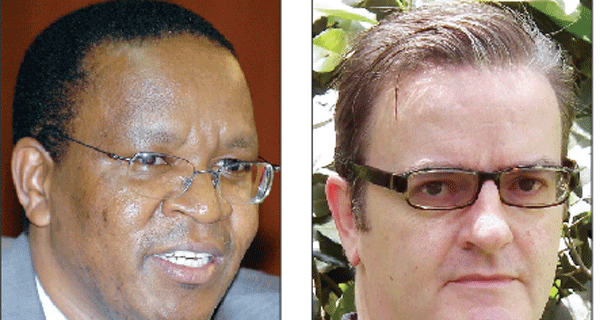×
The Standard e-Paper
Stay Informed, Even Offline
 |
| Foreign Affairs PS Karanja Kibicho (Left) and John Bradshaw, head of communications at the British High Commission in Nairobi. |
By ALEX NDEGWA
Kenya: Kenya fought bitterly to have a proposal to shield sitting presidents from prosecution placed for consideration at the ICC conference, on a day diplomatic row with Britain deepened.